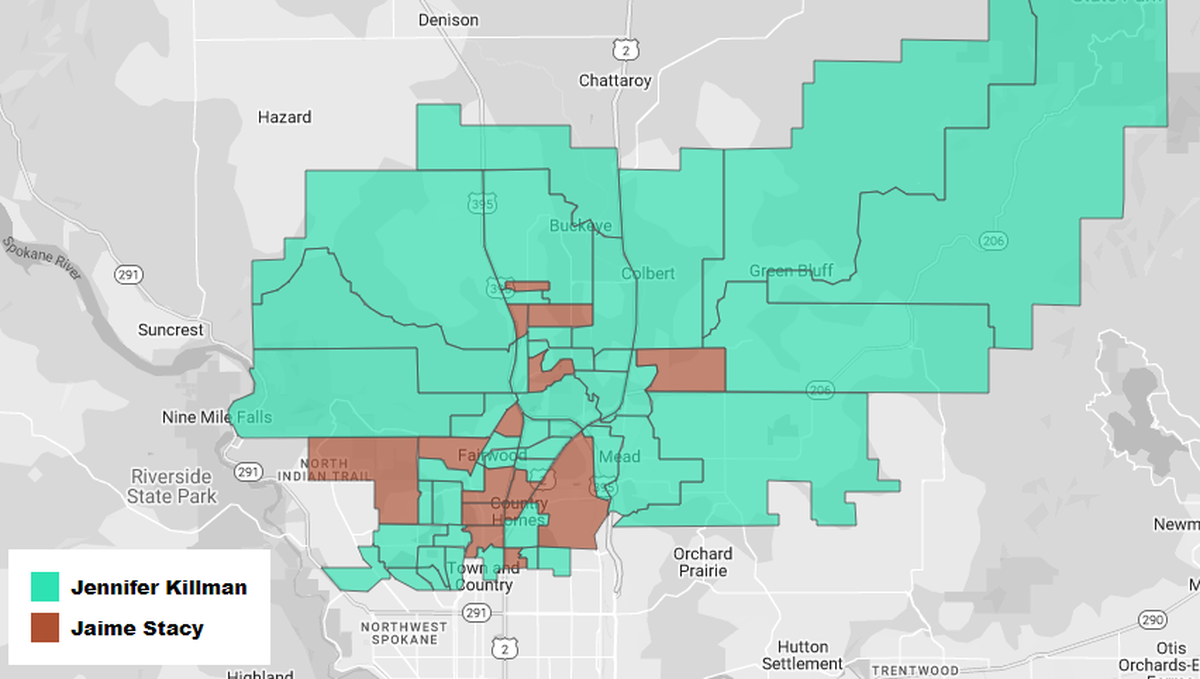Some school boards turn conservative in hotly contested and expensive election year

Voters in many school districts in Spokane County had clear choices between conservatives and moderates in Tuesday’s election.
The outcome varied greatly by district.
Voters in the Mead, Deer Park and Riverside school districts preferred conservative-leaning candidates, while the boards for Spokane Public Schools, Nine Mile Falls and Medical Lake districts will likely remain more moderate .
Cheney School District’s three contested seats showed mixed victories .
Central Valley’s three open seats results are inconclusive in early counts.
While officially a nonpartisan position, some candidates for school boards expressed a consistent preference toward ideologically conservative viewpoints, while others endorsed more moderate positions – often incumbents interested in maintaining existing efforts and priorities in their respective districts.
Common conservative-aligned talking points included calls for parents’ rights and more local control from school boards in matters dictated by the Legislature, including sex education curriculum, COVID-era mandates and inclusive gender policies.
Candidates espousing these priorities often garnered endorsements from Republicans. For example, the trio of Central Valley’s challengers Jeff Brooks, Anniece Barker and Stephanie Jerdon were endorsed by the Spokane County Republican Party. The GOP endorsed Medical Lake challengers Dennis Schilling and Mark Hudson, and Riverside challenger Peter Finn. Democratic-endorsed incumbents in Central Valley’s race, Cindy McMullen and Debra Long, lead their conservative challengers, while Keith Clark narrowly trails Barker.
“This is the first one that’s really been a contested election,” said McMullen, who’s held the seat for 32 years.
Incumbents are largely unaligned, some leaning progressive, like Spokane Public Schools incumbent and victor Mike Wiser, and some outliers like incumbent in Mead’s 4th district Michael Cannon, who leans conservative. With some exceptions, both camps approve of property taxes in the form of levies and bonds, though challengers are commonly critical of how the district spends these funds.
Mead is a stark example of the conservative shift in board results in Spokane suburbs.
Re-elected conservative Michael Cannon hailed the result as clear indication voters want a “strong school board that represents parents in the community.”
Retiring decades-long school board member Bob Olson is “concerned” by the result because of the “political” nature of the winning candidates.
Mead’s open race between Jaime Stacy and Jennifer Killman was the most expensive school board contest in the state, generating nearly $70,000 in fundraising.
Stacy’s progressive message failed to overtake Killman in the largely conservative school district.
Now that Mead conservatives have a majority, the district is set to chart a different path. Last year, Cannon introduced a measure banning critical race theory from Mead schools, which failed in a 2-3 vote.
A similar measure may be more likely to pass now if it is reintroduced. Cannon declined to say if he will reintroduce a resolution banning critical race theory.
“We’ll have to see how that goes or what the need is if it was something that the community wanted us to do,” he said.
After beating a longtime incumbent, conservative Alan Nolan said a CRT resolution was “not a priority.”
“The first thing we’re looking to do is to rebuild that trust … parents have confidence their tax dollars and their school system is serving them,” he said.
Luke Blue and Paige Van Buren contributed to this report.